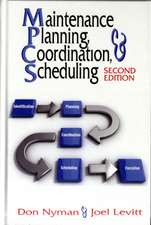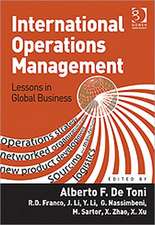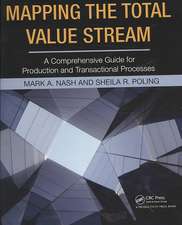The Social Side of Mergers and Acquisitions: Cooperation relationships after mergers and acquisitions
Autor Florian Frensch Cuvânt înainte de Prof. Dr. Hans Georg Gemündenen Limba Engleză Paperback – 24 mai 2007
Preț: 646.94 lei
Preț vechi: 761.10 lei
-15% Nou
Puncte Express: 970
Preț estimativ în valută:
123.79€ • 129.58$ • 103.03£
123.79€ • 129.58$ • 103.03£
Carte tipărită la comandă
Livrare economică 01-15 aprilie
Preluare comenzi: 021 569.72.76
Specificații
ISBN-13: 9783835007543
ISBN-10: 3835007548
Pagini: 508
Ilustrații: XXXI, 475 p. With 21 Grafiken.
Dimensiuni: 148 x 210 x 30 mm
Greutate: 0.6 kg
Ediția:2007
Editura: Deutscher Universitätsverlag
Colecția Deutscher Universitätsverlag
Locul publicării:Wiesbaden, Germany
ISBN-10: 3835007548
Pagini: 508
Ilustrații: XXXI, 475 p. With 21 Grafiken.
Dimensiuni: 148 x 210 x 30 mm
Greutate: 0.6 kg
Ediția:2007
Editura: Deutscher Universitätsverlag
Colecția Deutscher Universitätsverlag
Locul publicării:Wiesbaden, Germany
Public țintă
ResearchCuprins
Executive summary.- Summary of content.- and formulation of research questions.- Theoretical model.- Empirical investigation.- Empirical study at the first research site: SpecMatCo.- Empirical study at the second research site: SoftCo.- Discussion of results for research question “Who cooperates?”.- Discussion of results for research question “Who cooperates with whom?”.- Implications for practitioners.- Academic contribution and implications for further research.
Notă biografică
Dr. Florian Frensch promovierte bei Prof. Dr. Hans Georg Gemünden am Lehrstuhl für Innovations- und Technologiemanagement der Technischen Universität Berlin. Er ist Projektleiter bei The Boston Consulting Group, Berlin.
Textul de pe ultima copertă
Mergers and acquisitions often fail to generate the expected value. One of the main reasons for such failures is a lack of cooperation among employees which prevents the expected formation of synergies.
Florian Frensch investigates which individual characteristics of employees and which dyadic factors of relationship partners affect the cooperation between employees of previously separated firms. The author develops an innovative approach for gathering network data with the help of a dynamic computer-based questionnaire which allows him to conduct a full network analysis of a group of approximately 400 employees on the lower operative level of the firms. He shows that structural cooperation requirements and integration measures are powerful means to make employees cooperate after M&A and provides answers to the questions how integration after M&A can be measured, explained and improved.
Florian Frensch investigates which individual characteristics of employees and which dyadic factors of relationship partners affect the cooperation between employees of previously separated firms. The author develops an innovative approach for gathering network data with the help of a dynamic computer-based questionnaire which allows him to conduct a full network analysis of a group of approximately 400 employees on the lower operative level of the firms. He shows that structural cooperation requirements and integration measures are powerful means to make employees cooperate after M&A and provides answers to the questions how integration after M&A can be measured, explained and improved.










